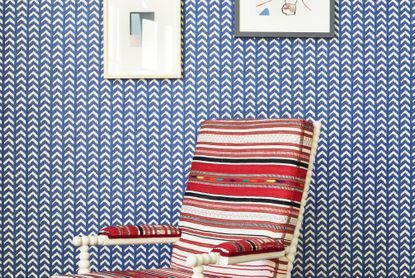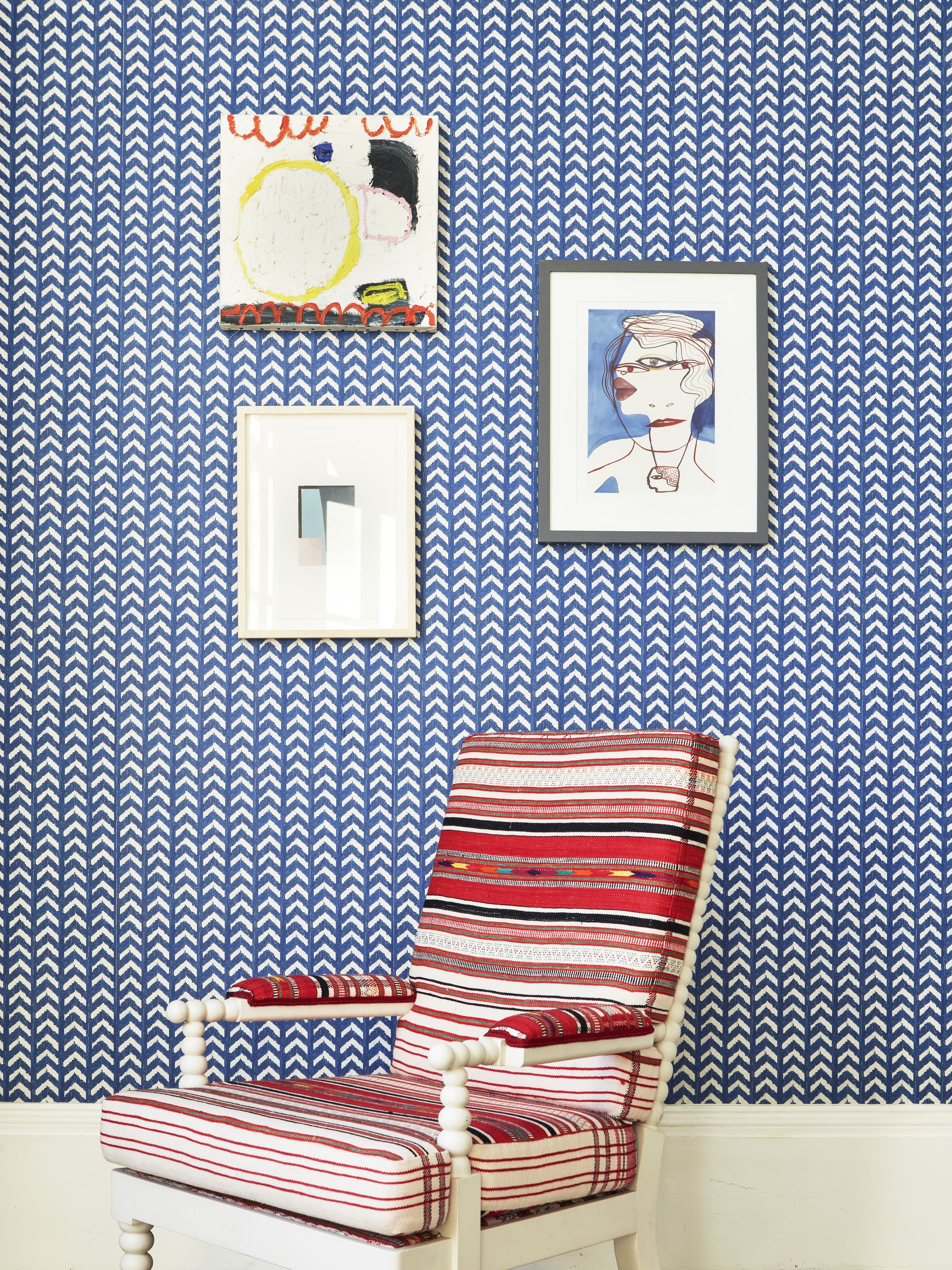Designer Amechi Mandi explains 5 perfect ways to use pattern in the home now
Amechi Mandi knows just how to decorate with pattern, and his five expert tips will make your home a happier place to live


Current decorating trends have come a long way from the days of being fearful of color. There was, once, a resulting sea of joyless beige and magnolia interiors that have - thankfully - gone the way of the statement wall.
Today, I see people confidently using color in all its glory, updating and transforming their homes. It's up to us designers to illustrate how color can be incorporated in contemporary and liveable ways. Even now, you see, pattern remains the last frontier for modern interiors.
Pattern has always been embraced in traditional decoration styles. Layered florals, chintz, ikat and pretty geometrics have sat comfortably together, ubiquitous in classic interior design. But for many people creating a modern home, pattern remains an outcast in many a modern interior.
But I'm inspired by the indigenous traditions and textiles of west Africa. There bold, diverse and colorful patterns sit naturally and comfortably side by side. Having been born in Cameroon I have always felt an affinity to pattern, which perhaps might feel at odds with contemporary urban style. Yet for me it’s all about how you approach this way of decorating.
And so, for the the pattern-cautious, the print averse and those who stay away from stripes I'm suggesting five ways you can easily bring them home. There's a joyfulness in being pattern-confident, that can filter into every corner of every room. Take a deep breath, and be bold!
1. Choose your palette

Diyenay wallpaper by Amechi for Dado
Just because you're playing with pattern - and you're going to be so glad you have done when your home makes you feel happy - doesn't mean it has to be a riot of color saturation.
Instead, for those taking the first few steps into this world, pick to and stick to a refined and minimal palette. Patterns of all kinds work well together when they share some common ground, so for a cohesive feel don’t mix pastels with brights, or jewel colours with mid tones.
2. Focus on transient spaces first

Hallway coverered in Sapo wallpaper by Amechi for Dado
It's easier to be brave in space you don't spend as much time. To take risks in the parts of your home that you don't sit in every night. And so, if you’re a pattern novice, introduce pattern in transient spaces first. Entryways, hallways and stairs are spaces that can create dramatic impact, but we don’t dwell in the space so never feel overwhelmed by bold or dramatic patterns.
These areas can also be easier to go strong in because they generally have less soft furnishings in them. Unlike a living room, with its couches and cushions, there is less for you to feel like you need to match your pattern with. So instead of trying to coordinate the pattern with the pieces you already own you can really have fun and be adventurous.
3. Mix the scale of the patterns

A single pattern introduced in an otherwise plain space will feel out of place - and just putting a vibrant stripe into a beige living room isn't enough to create a cohesive scheme. Instead, when putting together a nuanced room, you will need to combine bold prints and patterns together.
Thankfully, this can be done in a thoughtful way. A mix of scale will ensure each pattern has its own moment to shine - a cushion in a small check next to a curtain in a large repeat, for example. Or a vast wallpaper mural and then a sofa covered in tight swirls. Go big, go small, but don't keep every pattern the same size.
4. Let pattern be merely a backdrop

Diyenay wallpaper by Amechi for Dado
It can be easy to assume pattern might overwhelm a room, but it can be a background artist. Or at least, a background to the art which you want to have as your focal point.
It's rare that a wall in a home doesn't have anything hung on it, and this is just as true when it's covered in a boldly patterned wallpaper. Creating a gallery wall on top of this - or even just hanging one picture - will break up the pattern. And, contrary to perception, it will even calm a busy wallpaper. When hanging contrasting patterned artwork, the wider the frame the more visual space between the designs.
5. Match a pattern to a plain white wall

If none of these tips have persuaded you to embrace all out maximalism, there are still some softer suggestions to pair with neutral shades. In fact, if you’re a white walls addict, then keep the walls white - this isn't about reinventing your personal style.
Instead, choose patterns that have a white base or ground color. This is the color of the paper behind the stripe, say, or on which the floral is painted. These will sit easily within an otherwise white interior and serve as the anchor to other patterns within the space.

Amechi Mandi and his Sapo wallpaper for Dado
Amechi has designed a new collection of wallpapers for Dado, launching March 15th at dadoatelier.com
Find out more about Amechi Home at amechihome.com
Be The First To Know
The Livingetc newsletter is your shortcut to the now and the next in home design. Subscribe today to receive a stunning free 200-page book of the best homes from around the world.
Amechi Mandi is the founder of the London-based design brand Amechi, specialising in soft furnishings, and vibrant patterns. He has worked as a stylist and buyer, and been a founder of a fashion start-up as well as the creative director at Voo Store Berlin. His latest collaboration is with Dado, the wallpaper brand, for a collection of beautifully patterned papers. Amechi is a brand with a huge exploratory focus on traditional African textiles and cultures indigenous to the continent, using its founders skills and craftsmanship to create fun and decorative pieces.
-
 The 12 Best Table Lamps for Reading —I'm a Certified Bookworm (and Shopping Expert)
The 12 Best Table Lamps for Reading —I'm a Certified Bookworm (and Shopping Expert)When it comes to table lamps for reading, I don't mess around. If you're the same, this edit is for YOU (and your books, or course — and good recommendations?)
By Brigid Kennedy Published
-
 "It's Scandi Meets Californian-Cool" — The New Anthro Collab With Katie Hodges Hits Just the Right Style Note
"It's Scandi Meets Californian-Cool" — The New Anthro Collab With Katie Hodges Hits Just the Right Style NoteThe LA-based interior designer merges coastal cool with Scandinavian simplicity for a delightfully lived-in collection of elevated home furnishings
By Julia Demer Published

